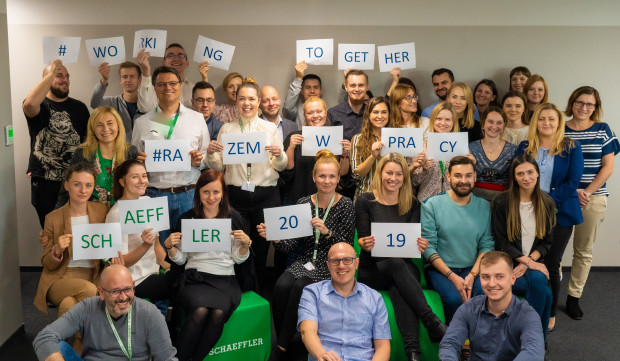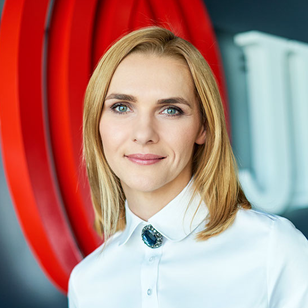Anna Berczyńska, Managing Director of Schaeffler Global Services Europe discusses the specificity of the shared services sector, the power of women, challenges that strengthen people and her DNA code of HR.
Anna Wasilewska-Dąbek: You have been involved in the construction of Schaeffler’s European Shared Service Centre in Poland from the very beginning. Wrocław beat other cities to host the centre. Why did the company choose this location?
Anna Berczyńska: The process of selecting a location suitable for our investment was conducted twofold. Initially, I and the first group of employees rented a temporary office. After we had opened the branch and were conducting a recruitment drive, we were looking for a permanent location for our headquarters. We also received a lot of support from our business partners, as well as from other organizations cooperating in the shared services sector. We felt that Wrocław was a place where we could quickly ‘find our feet’ and become part of the city’s business ecosystem in the long run. Today, after being on the Wrocław market for almost two years, I can say that we made the right decision, all the more so because I also relocated here from Poznań which is relatively speaking ‘just down the road’.
How do you assess the city from the perspective of a resident?
To be honest, of course, I had some concerns about relocating here so quickly. In fact, I only had a month to find a flat and start living in Wrocław. Yet I did well thanks to the help of some wonderful people that I met along the way. Just after the centre was launched in October 2018, the city started to invite me to business meetings organized under the auspices of ARAW, and through which I established excellent relations with leaders of other shared services centres. The exchange of experience and good advice have been and still are invaluable. Wrocław is very open to people, has a large number of cultural events to offer and is famous for its amenities for residents. It is a city that provides good support for both job seekers and investors.
You are running “mentoring walks” for women in Wrocław, adding your contribution to activities aimed at supporting women in business.
I believe in social potential, and I believe in creating a network that will connect young people, both women and men. That is why I engage in various initiatives outside my workplace. The pay-off for these efforts and activities is when I see people who, thanks to my help or that of others, are able to support people in their professional as well as personal development. This is probably my biggest motivator.
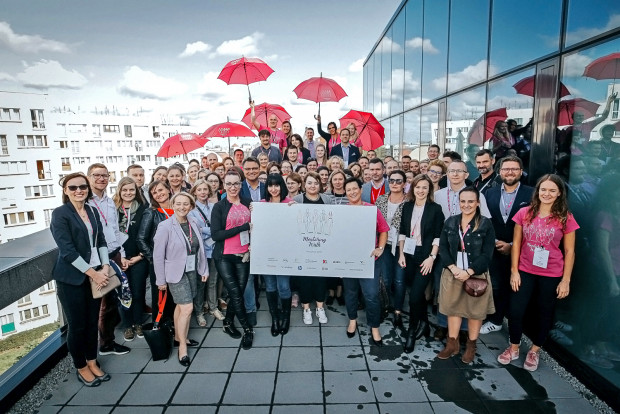
A motivator that works! You are the only woman within the structure of Schaeffler to hold such a high position.
Yes, that is right (laughs) I am motivated by my own experience as well as that of others. I get a great deal of strength from meetings with people, both at and outside of work. I also learn from the mistakes I make every day - just like everyone else. I am very open to new situations and acquiring new skills - hence my need for professional support for other women. The need to share is the main reason for engaging in activities aimed at supporting other women.
What is the average percentage of women working in the shared services sector today?
According to ABSL data, the share of women in the overall employment in service centers structure is 54%, while among female managers the figure totals 45%, which is the highest percentage since 2016 inclusive. These data show that women are gaining courage and want to occupy high positions in companies, and one of my tasks is to show the way how to do it.
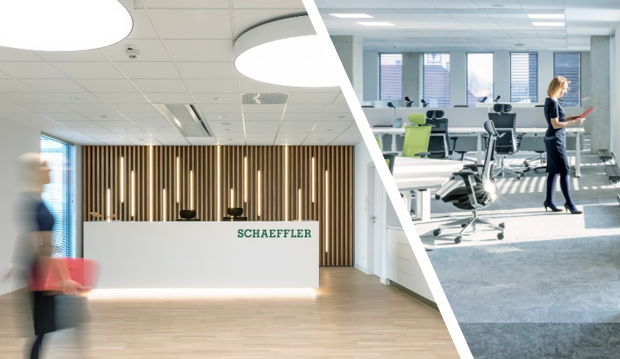
You are setting an example by relocating yourself.
The place is important, namely the city, but it is not the main criterion. The organization and its culture, for which you are ready to relocate, is of crucial importance. That is why organizations like shared service centres have achieved such excellent results in terms of a balance between men and women in managerial positions.
As a company, you made a conscious decision to involve the employees and use the services of workplace experts when organizing the company’s office.
That’s right. It was very important for us to prepare our employees for the change. Experts from JLL proved to be extremely helpful in this matter. The process included the direct involvement of employees in building communal spaces, organizing office life in chillout zones, and arranging the desk-screen-chair space. The involvement of employees in the organization of their work environment was enormous. Throughout the entire process, we used a range of tools that made the process of change easier.
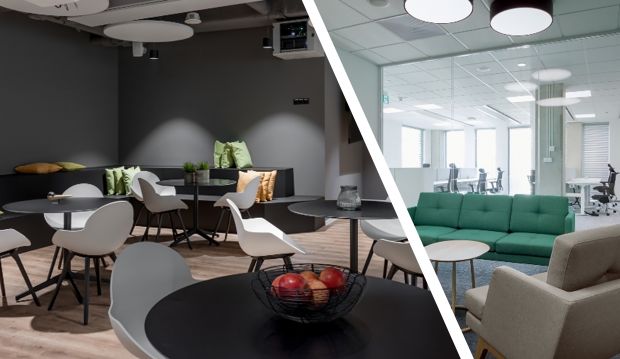
Does the new office support your efforts to build a team and organizational culture?
We are a young organization. We plan to employ 800 people. The great value of the whole relocation project was the development of a guide that describes the principles of work and coexistence in the office. Thanks to such a tool, during the relocation we managed to eliminate uncertainty amongst employees, show in what order and how we would move, what the new workplace would look when the employees got to the new office. Creating a new place together and developing a guide not only allowed us to build a certain awareness and confidence but also gave us a good start to building an organizational culture for the future.
Have you introduced new working rules during the course of the change?
Yes, just as creative workspaces are something natural, the greatest change for us was the subject of desk sharing. That is why we conducted an open dialogue with employees throughout the entire space design process.
Are there any points in the guide that improve the current situation of working from home?
Today we are not dealing of course with desk sharing, yet more with remote working, but we will surely come back to this. Given the current situation with COVID-19, I think we are facing a cultural change towards a greater understanding and implementation of the remote working model compared to what we have previously seen when most employees worked from the office. I think there is a new opportunity to work in a more virtual environment and an even greater emphasis on desk sharing, cooperation in places we call “collaboration” where people meet to share experiences or create a project together but are not necessarily people who would work together on a daily basis, in the proverbial desk-to- desk sense.
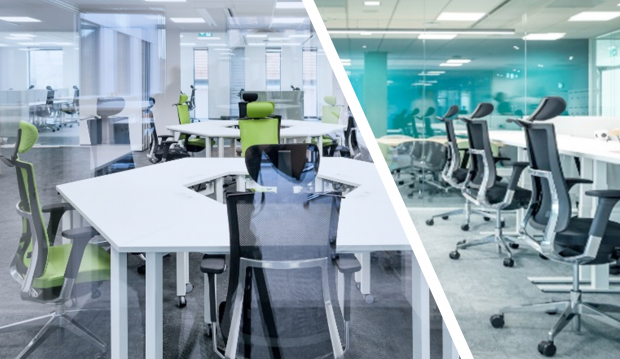
What other changes await the business services sector from an HR perspective?
In our sector, it is very important to understand that we work with people and our role is to support them in achieving their professional goals and ambitions within their role. This will not change, and will always remain the main role of the management team.
Your role in ABSL focuses on the area of HR. In what way exactly?
My role in ABSL is to build talent development strategies in the business services sector. It includes both raising competences towards more comprehensive roles and adapting competences to changing situations. In addition, we are working on other ways of working including remote working, which we have currently been forced into by the COVID-19 pandemic, as well as additional wellbeing options. We will focus on ensuring multi-generationality in a sector that is relatively young and does not yet experience the challenges as well as opportunities of a work environment that includes several generations of employees. In other organizations there can be up to four or five generations.
How can multi-generationality be “developed”?
The average age of our employee is 30-35 years. At some point, this will change and within one organization we will have people who are just starting their careers, along with another group - people for whom it will be important to balance their personal life, being a parent and working life, to those people who are ready for retraining to take new challenges. My role will be to moderate the discussions in such a way that we can prepare for this situation, conduct workshops with member companies, prepare reports and analyses, and provide substantive support to our ABSL strategic partners.
Poland has great potential in the European region in terms of developing the shared services sector. Will we have enough talent to make these investments?
I am sure that we will. Apart from developing talent and providing opportunities to transfer in more complex roles, I would like to contribute to making Poland more attractive for talents from abroad. The issue of stability of the entire legislative system, including the simplification of the tax system, the issue of abolishing the 30-times ZUS threshold, any dilemmas that may to some extent act as a barrier for the development of the labor market in the sector, will be crucial not only for ABSL, but also for my role within this organization.
What are you currently doing as part of your role in ABSL?
In the current situation, it is crucial to improve leadership competencies by strengthening specific skills on which I would like to focus on our strategic partners in order to prepare managers for any changes that may happen. We cannot of course correctly predict everything that will happen to the sector. The challenges we will face including crisis management in the COVID-19 situation, but even more so, how we come out of this situation is something we will certainly be addressing on an ongoing basis within ABSL.
Thank you very much and I wish you all the best for the future!
